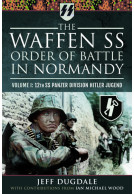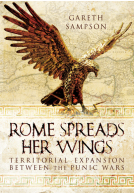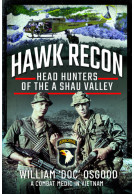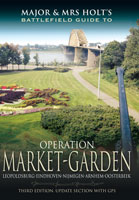Out of the Depths of Hell (Paperback)
Imprint: Pen & Sword Military
Pages: 176
ISBN: 9781844152919
Published: 30th August 2005
Last Released: 1st August 2007
(click here for international delivery rates)
Need a currency converter? Check XE.com for live rates
As John McEwan, a young Gunner in the 155th (Lanarkshire Yeomanry) Royal Artillery Regiment sailed down the Clyde in early 1941, he and his colleagues could never have imagined the horrors that lay ahead. When John and his Regiment landed in Malaya, they were all hugely confident. This evaporated in utter disbelief as the British were totally out-manoeuvered by the Japanese advance culminating in the capture of Singapore. However there was hard fighting, more than generally credited, and John McEwan found himself in the thick of it. In the event, the author was one of the few to survive the horrors of prolonged captivity and mistreatment. This is his extraordinary story, told with humility and pride, which he dedicates both to those who slaved, suffered and died in brutal conditions of the Kinkasaki copper mine.
"It is well that our Maker does not permit us to know what the future holds for us," muses author John McEwan. The future was to take him into the jungles of the Far East, where he and his fellows from the 155th (Lanarkshire Yeomanry) Field Regiment Royal Artillery would find themselves pitted against some of the most fanatical Japanese troops. He experienced, first-hand, the meaning of Japanese captivity behind the walls of notorious Changi Prison and, subsequently, became an eyewitness to the brutal "Chinese Massacres", something he accounts in harrowing detail.
Stephanie A. Jefford
The mention of Far Eastern Prisoners of War summons up images of the blazing sun and of the Burma-Siam Railway, Mc Ewan here describes horrors no less traumatic but less well-known. He gives a voice to the voiceless: not only to those who never did come back, but those who did but were never able to talk about it. The author disproves the notion that history is "controlled by the historians".
We get an interesting perspective on the true nature of occupation by periodic glimpses of the so-called Indian national army. The text gains much from photographs, maps and artwork, not to mention some authentic dialect poetry. With its honest, gritty, direct, emotional impact this book cannot fail to move any reader.
As a resident of Lanarkshire I was very interested to find out more about the exploits of the Lanarkshire Yeomanry in the Second World War. This book pulls no punches when it comes to describing the horrific treatment suffered by the men of the 155th RA, and I have the utmost respect for what these men went through. I cannot recommend this book enough.
David McNay














